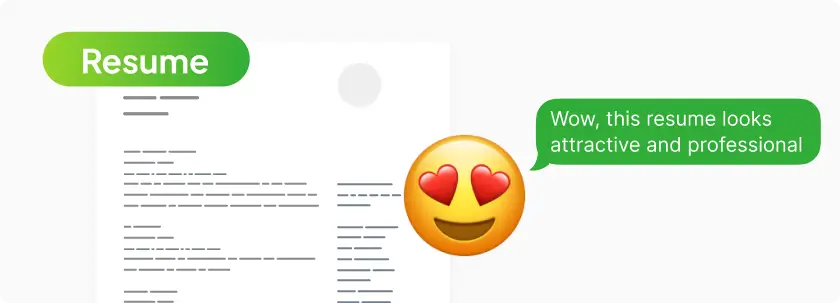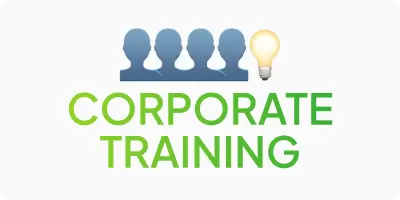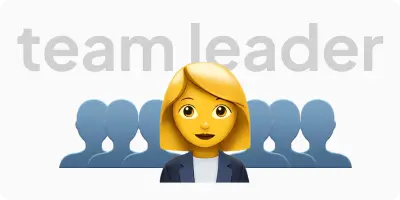
A resume is the first impression an employer has of you, so it’s important to make it as attractive and professional as possible. So how do you write a resume correctly?
How to write a resume correctly: step-by-step instructions
Determine the purpose of your resume
Before you start writing your resume, determine your goal. Are you looking for your first job, wanting to change careers, or get a promotion? This step will help you to formulate your resume correctly and focus on the skills that are worth highlighting.
Choose a resume format
There are several resume formats:
- Chronological: the most common format, in which work experience is arranged in reverse chronological order.
- Functional: focuses on skills and accomplishments rather than job sequence.
- Combined: combines elements of chronological and functional formats.
Resume structure
Let’s look at the proper resume structure to attract the attention of an employer:
Headline and contact information: include your name, address, phone number, and email at the beginning of your resume. You can also add links to your LinkedIn profile and portfolio.
Summary or objective: This section includes a brief description of your professional goals and core competencies. It should be clear, specific, and concise so that the employer understands why you are the right person for the position.
Work experience: This section includes your previous work experience in reverse chronological order. For each position, please include:
- Company name and location.
- Period of work (month and year of start and end).
- Title of the position.
- Main responsibilities and achievements.
Education: For a better understanding of your professional skills and knowledge, please provide:
- Name of the educational institution.
- Degree and specialty.
- Dates of graduation.
- Honors and awards (if any)
Skills: list the main professional skills that are relevant to the position you are applying for. These can be technical skills (knowledge of software, programming languages, etc.) or soft skills (communication, leadership, etc.).
Additional information: this section may include:
- Certificates and licenses.
- Volunteer experience.
- Languages you speak.
- Publications, projects, or other professional achievements.
When writing a resume, you should tailor it to the desired position as much as possible and include everything that will help you stand out from other candidates and show the employer that you are exactly what they are looking for.
Key tips for creating a resume

Be specific: One of the most important components of a resume is to be specific. Employers want to see clear and detailed examples that show your accomplishments and contributions to previous companies. Here’s how to be specific when writing a resume:
- Numbers and metrics: use quantitative indicators to describe your accomplishments. For example, instead of “Improved sales process,” write “Improved sales process, resulting in a 15% increase in sales in six months.”
- Specific examples: give examples of real tasks and projects in which you participated. For example, “Managed a project to implement a new CRM system, which reduced customer request processing time by 30%.”
Use active verbs: It may seem insignificant, but using active verbs will make your resume more dynamic and appealing. This way, your resume won’t be dry and unemotional, and employers really appreciate it when you show interest in your resume. Here are some examples of active verbs:
- Developed: “developed a marketing strategy that increased website traffic by 25%”.
- Managed: “Managed a team of 10 people to complete the project on time and meet all deadlines.”
- Implemented: “Implemented a new accounting system that reduced costs by 10%.”
- Improved: “Improved customer service, which increased satisfaction by 20%.”
Emphasize your achievements: Your resume shouldn’t just list your responsibilities, it should emphasize your specific accomplishments. Here’s how you can do that:
- Accomplishments: Instead of simply stating that you were “responsible for projects,” write “Successfully completed 5 major projects on time and on budget.”
- Problem-Action-Result: Use the Problem-Action-Result format to structure your accomplishments. For example: “Faced the problem of high staff turnover (problem). Developed a loyalty program for employees (action). Reduced turnover by 20% in a year (result).”
Be concise: brevity and clarity are highly valued by employers and HR managers. When searching for a suitable candidate, they look through hundreds or even thousands of different resumes and CVs. So use short and clear sentences, avoid unnecessary information. Here are some tips:
- One to two paragraphs per job experience: For each position, use one to two paragraphs to describe the main and most important responsibilities and accomplishments.
- Highlight key points: Use bullet points to highlight key accomplishments and skills. You don’t need to give all the details, focus on the most important things.
- Eliminate the unnecessary: avoid irrelevant details that are not directly related to the job you are applying for. Employers don’t really care about your stories and details that don’t relate to the skills they need.
An example of effective resume writing
Resume for Middle Specialist Marketing Manager
Name: Iryna Shevchenko
Address: 34 Franka St., Lviv, Ukraine
Phone: +38 000 000 0000
Email: [email protected]
Brief description
Over 5 years of experience in developing and implementing marketing strategies. I specialize in digital marketing, market analysis and increasing customer engagement. I was interested in your company because you, like me, are focused on continuous development and reaching new heights. I want to help you implement creative marketing solutions and grow together.
Work experience
Digital Marketing Specialist
ABC Company, Lviv
January 2020 – present
- Developed and implemented a marketing strategy that led to a 40% increase in traffic.
- Managed advertising campaigns in Google Ads and Facebook Ads with a budget of over $100,000.
- Conducted market and competitor analysis, which helped to identify new business opportunities and optimize marketing strategy and increase sales by 15%.
Marketing Coordinator
CDE company, Lviv
July 2017 – December 2019
- Organized exhibitions and presentations of the company’s services, which allowed to attract more than $40,000 of investments and 150 new clients and partners.
- Managed content for social media and the website. Thanks to this, brand awareness increased by 43% over the year.
- Negotiated with suppliers and partners. As a result, we received a 13% discount on supplies.
Education
Ivan Franko National University of Lviv
Master’s degree in marketing
September 2013 – June 2017
Average grade point average: 4.7/5
Master’s thesis: “Effectiveness of digital marketing in small business”
Skills
- Marketing tools: Google Analytics, Google Ads, Facebook Ads, Hootsuite
- Data analysis: Excel, Tableau
- Languages: Ukrainian (native), English (fluent), German (intermediate)
Additional information
- Certificates: Google Analytics Certified, Facebook Blueprint Certified
- Hobbies: Traveling, learning foreign languages, photography
Summary.
Writing a resume is not easy, but it is very important for getting your dream job. The first thing an employer sees is your resume, as well as your cover letter and letter of recommendation (if you have one). You can learn how to write a resume and other important documents in the HRbanda blog.
When creating a resume, it is important to indicate the key points that are important for this particular vacancy in order to make the employer think from the first words “Here he is. We’ve been looking for him!












